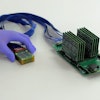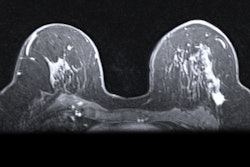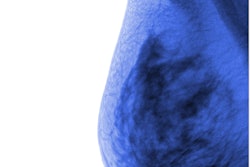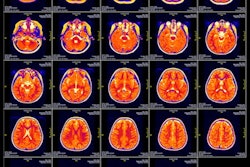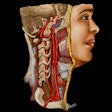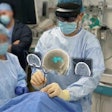MRI radiomics show a high diagnostic accuracy for predicting Ki-67 expression in breast cancer, researchers have found.
The findings are good news for patients when it comes to assessing disease, as Ki-67 is an effective indicator of tumor aggressiveness, wrote a team led by Peyman Tabnak, MD, of Tabriz University of Medical Sciences in Tabriz, Iran.
"[Accurate] estimation of Ki-67 is essential for both tumor classification and prognosis prediction," the group noted.
Breast cancer is the most common form of cancer among women, and immunohistochemical biomarkers such as ER, PR, and HER2 have long been used to classify it. Another biomarker used for this purpose is Ki-67, a protein that signals cell proliferation and has been tracked not only to assess cancer aggressiveness but also patient response to treatment and prognosis, the team explained. Analysis of Ki-67 has tended to be conducted via tissue sampling via biopsy; researchers have been interested in exploring the use of less invasive techniques such as imaging, and the continued development of AI technology has begun to make identifying disease pathology with imaging even more effective.
"AI techniques, including machine learning and deep learning, have shown promising potential in various medical applications, particularly medical imaging," the group wrote. "These AI-driven approaches can automatically analyze complex patterns within images, offering a powerful means to extract valuable information from medical data. One such application is radiomics … which involves the high-throughput extraction and analysis of quantitative features from medical images and converting these features into decision support tools."
To investigate the use of AI and imaging to track Ki-67 in breast cancer patients, the authors conducted a literature review of 21 studies found on PubMed, Web of Science, and Embase through March 2023, assessing each study's sensitivity, specificity, and area under the curve (AUC) results.
They found the following:
| Predictive value of MRI-based radiomics for Ki-67 antigen in patients with breast cancer | |
|---|---|
| Measure | Result |
| Model training cohort | |
| AUC (with 1 as reference) | 0.88 |
| Sensitivity | 80% |
| Specificity | 82% |
| Model validation cohort | |
| AUC (with 1 as reference) | 0.84 |
| Sensitivity | 81% |
| Specificity | 73% |
The authors also found that the diagnostic performance in studies that used deep learning-based radiomics and multiple MRI sequences (for example, a combination of diffusion-weighted imaging [DWI] and dynamic contrast-enhanced [DCE] imaging) was somewhat higher, and that radiomic features garnered from DWI sequences performed better than contrast-enhanced sequences in terms of specificity and sensitivity, they wrote.
"[Our review and analysis] showed that MRI-based radiomics have a robust potential utility for predicting Ki-67 in breast cancer," Tabnak and colleagues concluded.
The complete study can be found here.

